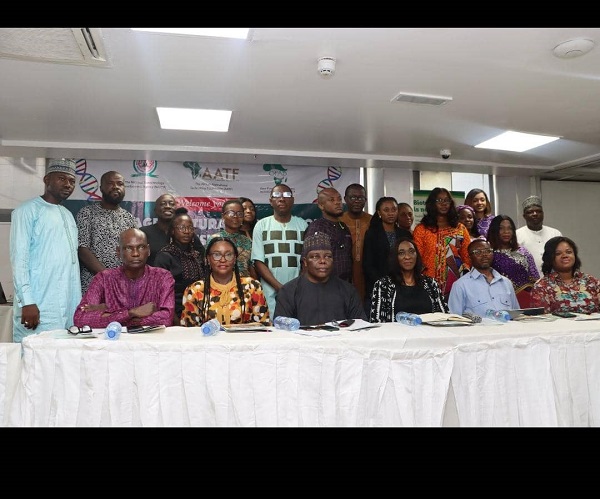
In a bid to advance the field of agricultural biotechnology in Nigeria, the director-general of the National Biotechnology Development Agency (NABDA), Prof. Abdullahi Mustapha has emphasised the critical role of accurate information.
He articulated this perspective during an interactive session titled “Navigating Biotech Frontiers for Accurate Science Communication”, organised by the Open Forum on Agricultural Biotechnology (OFAB) in Africa, Nigeria Chapter, under the auspices of the African Agricultural Technology Foundation (AATF) and in collaboration with NABDA. It was held in Lagos and involved selected senior editors from Lagos-based media organisations.
Mustapha underscored the necessity for the general public to comprehend, accept and embrace agricultural biotechnology. He stressed that NABDA has a collective responsibility to ensure that all Nigerians have access to accurate and impartial information regarding agricultural biotechnology. This access will enable individuals to make informed decisions about the applications of this technology.
He acknowledged the pivotal role of the media in bridging the gap between intricate scientific discoveries and the broader society. The media serves as a conduit for translating technical jargon into comprehensible language, fostering informed discussions, and connecting the scientific community with the public. In light of this, he highlighted the imperative need for constructive dialogues on how the media can enhance its coverage of agricultural biotechnology, biosafety, and related topics.
The director of the agricultural biotechnology department at NABDA, Dr. Rose Gidado illuminated the vulnerability of Nigerian agriculture to climate change. She discussed the adverse effects of climate change, including higher temperatures, prolonged droughts, floods, and other factors that have led to reduced agricultural production, especially in the northern states. Gidado emphasised that biotechnology provides innovative tools to bolster agricultural productivity and safeguard food crops from the impacts of climate change, such as heat, floods and drought.
She concluded her remarks by asserting that the utilisation of biotechnology tools in Nigerian agriculture has become a necessity, given the current state of emergency declared in the country’s food production.
The head of the Open Forum on Agricultural Biotechnology & biotech awareness unit, Mrs. Iweajunwa Sarah Ogochukwu enumerated the workshop’s objectives. These include enlightening participants about developments in agricultural biotech, addressing misconceptions regarding the technology’s safety and enhancing the capacity of participants to make more informed editorial decisions regarding agricultural biotechnology.
The director-general of the National Biosafety Management Agency (NBMA), Dr. Agnes Asagbra emphasised the rapid advancement of modern biotechnology. She highlighted the necessity of adhering to new regulatory requirements to ensure the protection of human health and the environment. Asagbra also emphasised that modern biotechnology, when applied within a legal framework, can serve as a valuable instrument to address global and national concerns and challenges in fields such as human health, agriculture, the environment and industry.
The workshop, as outlined by OFAB’s information officer, Sarah Iliya Melah aimed to provide editors with a comprehensive understanding of agricultural Biotechnology and biosafety matters. This knowledge will enable editors to make evidence-based decisions about genetically modified (GM) crops and facilitate clearer communication of policymakers’ decisions to the public.


